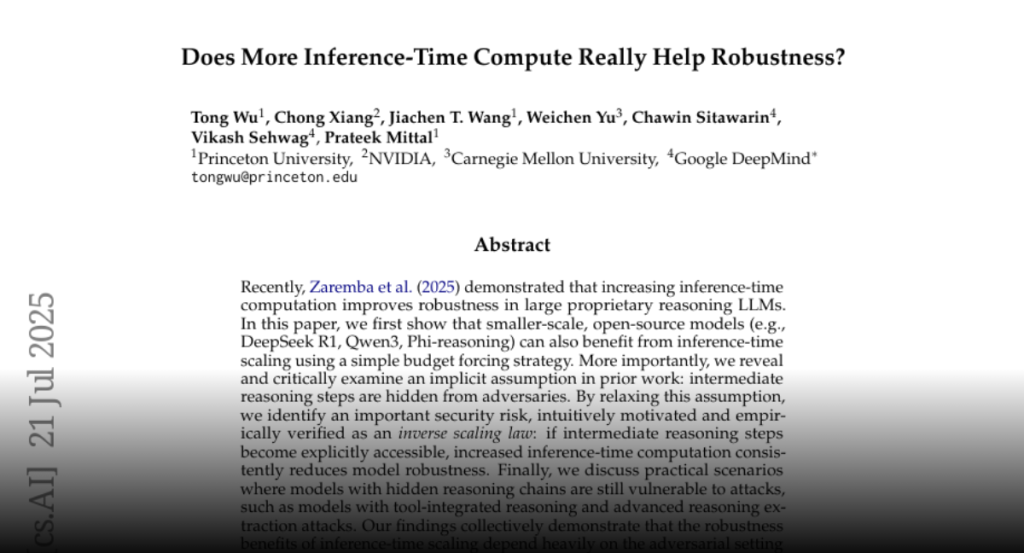Recently, Zaremba et al. demonstrated that increasing inference-time
computation improves robustness in large proprietary reasoning LLMs. In this
paper, we first show that smaller-scale, open-source models (e.g., DeepSeek R1,
Qwen3, Phi-reasoning) can also benefit from inference-time scaling using a
simple budget forcing strategy. More importantly, we reveal and critically
examine an implicit assumption in prior work: intermediate reasoning steps are
hidden from adversaries. By relaxing this assumption, we identify an important
security risk, intuitively motivated and empirically verified as an inverse
scaling law: if intermediate reasoning steps become explicitly accessible,
increased inference-time computation consistently reduces model robustness.
Finally, we discuss practical scenarios where models with hidden reasoning
chains are still vulnerable to attacks, such as models with tool-integrated
reasoning and advanced reasoning extraction attacks. Our findings collectively
demonstrate that the robustness benefits of inference-time scaling depend
heavily on the adversarial setting and deployment context. We urge
practitioners to carefully weigh these subtle trade-offs before applying
inference-time scaling in security-sensitive, real-world applications.

